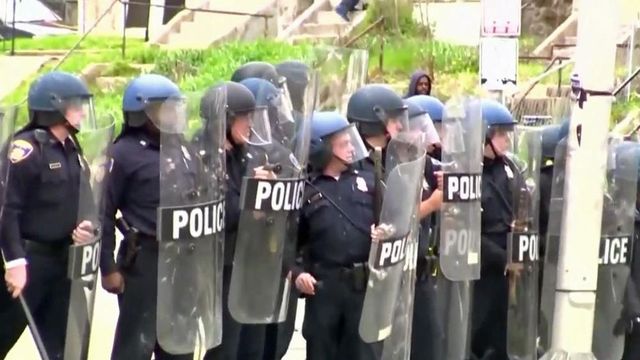Police recruitment efforts get creative amid declining interest in job
At the beginning of the century, applications poured into police departments, but area police say the flow is now more like a trickle as finding qualified candidates becomes more difficult.
Posted — UpdatedPaola Garcia stands 5 feet, 2 inches tall and is soft-spoken with an easy smile. She’s not the type many expect to become a police officer.
“Yes, of course people say police officer and they think they have to be big tough guys, muscle men guys that know how to shoot, know how to drive fast cars,” Garcia said.
Garcia is exactly the candidate area police want. She’s a college educated, minority woman with a background in and passion for helping people.
Chapel Hill Police Chief Chris Blue said he feels lucky to have her as a candidate.
“I think you really have to push back on those stereotypes and acknowledge that the bulk of what law enforcement officers do, 98 percent of your time or more is spent interacting with people, talking with people, helping resolve whatever problem they may be having that they called you for,” Blue said.
Finding the right candidates hit a new level of intensity for area police departments. The Durham Police Department said their offer of a $5,000 bonus for new and lateral officers is unprecedented in unprecedented times.
Local law enforcement agencies said there is not as much interest in becoming a police officer as there used to be.
“In the last four years, I think every year we’ve seen a decline and this is a concern,” said Steven Combs with the North Carolina Department of Justice.
Combs oversees the mandatory basic law enforcement training class with the DOJ. Since 2013, he’s seen applications drop from 2,713 to 1,786 in 2016. Due to low interest, 19 classes were cancelled in 2016.
Blue said in the 1990s, thousands of applicants applied to join the department, but now the numbers are in the hundreds.
“To be honest, a significant number of those will not make it through the screening process,” Blue said of the applications he does receive.
A state group of law enforcement personnel commissioned Application State University to look at recruiting challenges. It learned the top three road blocks are the perceived danger of the job, pay and negative portrayal of police in the media.
Departments statewide are rethinking how they market to applicants and what they offer them. After a commercial advertising new incentives from the Durham Police Department aired, open houses jumped from five to 10 attendees per session to between 25 and 30 attendees.
“It requires, I hate to use this term, thinking outside the box and we’ve got to look at a different approach to getting young men and women at an early age, in high school, interested in this as a career,” Combs said.
Chapel Hill hopes to bring in candidates with education incentives. Starting salary is about $37,000, but applicants with a bachelor’s degree get 5 percent more and can start at $38,900.
“We are going through remarkable change and reformation. We’re having really important conversations with all segments of our communities. Many of those are long overdue,” Blue said.
Garcia said she considered the danger, the pay and the extra scrutiny before applying, but in the end it came down to a passion for the job.
“I’m very passionate about making our community safer, making families know that we’re here to help them,” she said.
Garcia will be going to the police academy in March.
The head of recruiting at the Durham Police Department said they just hired 26 officers and went from more than 60 vacancies to about three dozen. They said they do allow interested candidates to do ride-alongs to see if they like the job.
• Credits
Copyright 2024 by Capitol Broadcasting Company. All rights reserved. This material may not be published, broadcast, rewritten or redistributed.






